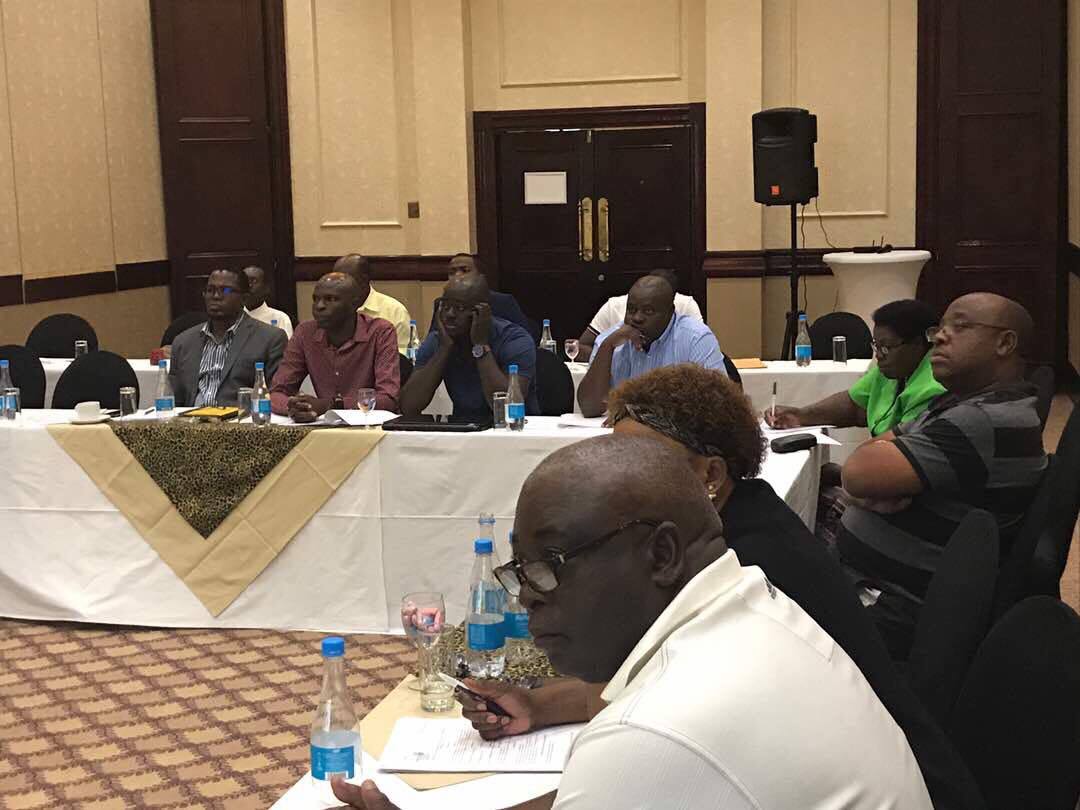
Southern Africa, for many years considered a beacon of democracy on the continent, has recently been showing signs of democratic decline. Corruption, state capture, compromised judicial and legislative institutions and attempts to stifle media and freedom of expression have become too common of a story in many countries in the region.
A strong and sustainable democracy is dependent upon the existence of resilient and well-functioning political parties. In presenting differing policy platforms, recruiting and fielding candidates and representing different interests, parties provide voters with choices and solutions to their needs, thus garnering citizen support at the ballot box, and if successful, serving them in office. The failure of political parties to play this role – due to weak internal capacity, personality-driven politics and inability to respond to citizen needs – has led to diminishing trust in political parties as effective democratic institutions. Six countries within the Southern Africa Development Community (SADC) are driven by political parties that have been in power for an average of 22 years. These parties have manipulated formal democratic institutions and structures, such as amending constitutions to extending term and age limits, ensuring they will remain in power for many more years to come. While multi-party democracy has more popular support in Southern Africa than any other form of governance, many countries struggle to overcome the challenges impeding genuinely competitive multi-party systems.
In light of this rising trend of democratic backsliding in Southern Africa, IRI’s work focuses on fostering regional political linkages between countries to cultivate a local support network dedicated to upholding democracy across the region. As part of these efforts, in September 2017, the Institute hosted a regional political party conference in Gaborone, Botswana. 14 political parties from Angola, Botswana, Malawi, Namibia, South Africa, and Zimbabwe took part of the meeting. This discussion brought together like-minded political party representatives from both ruling and opposition parties across Southern Africa who were dedicated to democratic principles and values. The conference provided a safe platform for political parties to discuss “burning issues” affecting their countries, exchange best practices and lessons learned and build relationships that could help foster the infrastructure of democracy in the region. IRI invited representatives from Electoral Institute for Sustainable Democracy in Africa (EISA) and Afrobarometer to participate in the conference to foster collaboration with like-minded regional organizations and for participants to benefit from data, analysis and perspectives of these two institutions.
During the conference, the delegates discussed the relevance of political parties in “millennial” democracies and ways in which parties need to adapt to a younger voting bloc. They addressed technology in elections and the use of biometric voter registration and electronic voting machines. Finally, they spoke about the use of polling data to form a data-driven winning campaign strategy.
The conference also included presentations from Angola’s ruling and opposition parties where they offered insight on Angola’s August 2017 election challenges and successes. Party agents from Botswana and Zimbabwe discussed the difficulties of forming unified coalitions and how critical neutral conflict resolution mechanisms are for a coalition’s victory. Management of elections, the role of political parties in voter education and safeguarding the vote were topics that were of particular interest to the parties, as a number of countries in the region are gearing up for elections in the next couple of years.
Participating parties agreed that it is essential to look at young voters who represent the most significant voting block. Young voters are educated and understand democracy, but are frustrated with the lack of opportunities and candidates they want to vote for; for many apathy is setting in, and their activism focuses on social media. Parties that can tap into this group have a high chance of winning elections. Participants agreed that we’re seeing growing skepticism in the region over the use of technology in elections, or rather the intentions behind the introduction of technology. In some places it is welcome, in others disputed. Participants noted that transparency in election management is extremely important. Introduction of technology should be preceded by voter education that will help citizens and election stakeholders understand the technology itself and benefits and opportunities it provides. However, it is important to understand that even the legitimacy of well managed elections can be questioned or disputed if there is no trust in the process and election management bodies. Technology is not a silver bullet for free, fair and transparent elections. If the voters and political parties do not have trust in the underlying system, no amount of technology can improve that.
Political parties came to a consensus that there is a need to invest in training of party agents in advance of Election Day and data-driven approaches when designing their campaign strategies. However, the common problem is lack of funding which can be overcome by more proactive fundraising and also partnering with organizations such as IRI and Afrobarometer, both who track key trends in their countries. Also, a data driven approach does not necessarily need to be very expensive; even an occasional survey can provide valuable insights and guide the strategy for development. Additionally, focus groups are cost effective and are very valuable in understanding data that surveys offer.
The Botswana conference highlighted the importance of continued regional dialogue and partnership on how to reverse some of the recent trends and put, once again, Southern Africa at the forefront of democracy on the continent. IRI will continue to provide support and space for this dialogue, combined with technical support to the parties on issues of strategy development, mobilization of young voters, use of technology, conflict resolution and coalition building.
Top